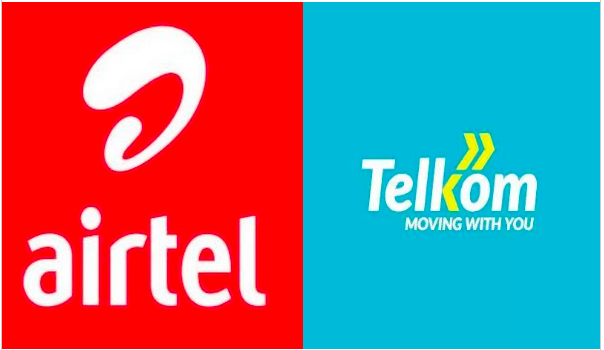Telkom and Airtel have begun merger talks to carry out their businesses as a joint venture. The joint venture will improve the two mobile operators’ competitive position against Safaricom while helping them reduce the losses they have been incurring.
A joint venture allows two or more companies to work together as commercial entities while maintaining their identities.
According to an article by the Standard, the parent companies abroad are discussing the deal which is almost complete. Additionally, the Communications Authority of Kenya (CA) is aware of the deal and a second meeting with the regulator and the two telcos will take place very soon. The joint venture announcement is also expected any time from now.
The possibility of a joint venture between Telkom and Airtel will mean that the Analysys Mason report will now be more difficult to implement since the rules will have changed to a duopoly. Ergo, the CA will have to start all over again in finding new strategies to regulate the market.
The Benefits of a Joint Venture
A joint venture has many perks mainly because it will make Telkom and Airtel just as powerful as Safaricom. By putting their resources together, the two mobile operators will compete more favourably with the telecom giant.
Through a joint venture, Telkom Kenya and Airtel will bring together their 1,581 and 1,548 base stations respectively. That means their base stations will be nearly close to Safaricom’s 4,000 base stations.
By operating more base stations, the two operators can boost their coverage to underserved areas. Furthermore, Telkom has a large data market share and Airtel is the second largest operator in mobile customer numbers. That means that they will have the ability to offer their customers better packages once the joint venture is completed.
Although the two operators will still have less mobile subscribers than Safaricom’s 29.4 million when combined, the joint venture will put more resources at their disposal and offer them an opportunity to grow.
Presently, Airtel has 30MHZ leaving out 10MHZ for 4G or LTE while Telkom has 27.5 MHZ leaving out 10MHZ set aside for LTE testing. If they merge, the two operators will have a spectrum of 57.5MHZ and when they pay the 10MHZ for 4G testing, the spectrum will increase to 77.5MHZ.
Safaricom has 47.5MHZ including the 10MHZ for 4G which it has already paid for. Therefore, with combined efforts, Telkom and Airtel could have greater network coverage than Safaricom.
The two operators, which are supposed to make a merger application to the Competition Authority of Kenya (CAK), are yet to do so.
RELATED;
Bharti Airtel Plans to Take Its African Business Public
Safaricom, Airtel & Telkom Set to Launch Mobile Money Interoperability in Kenya




